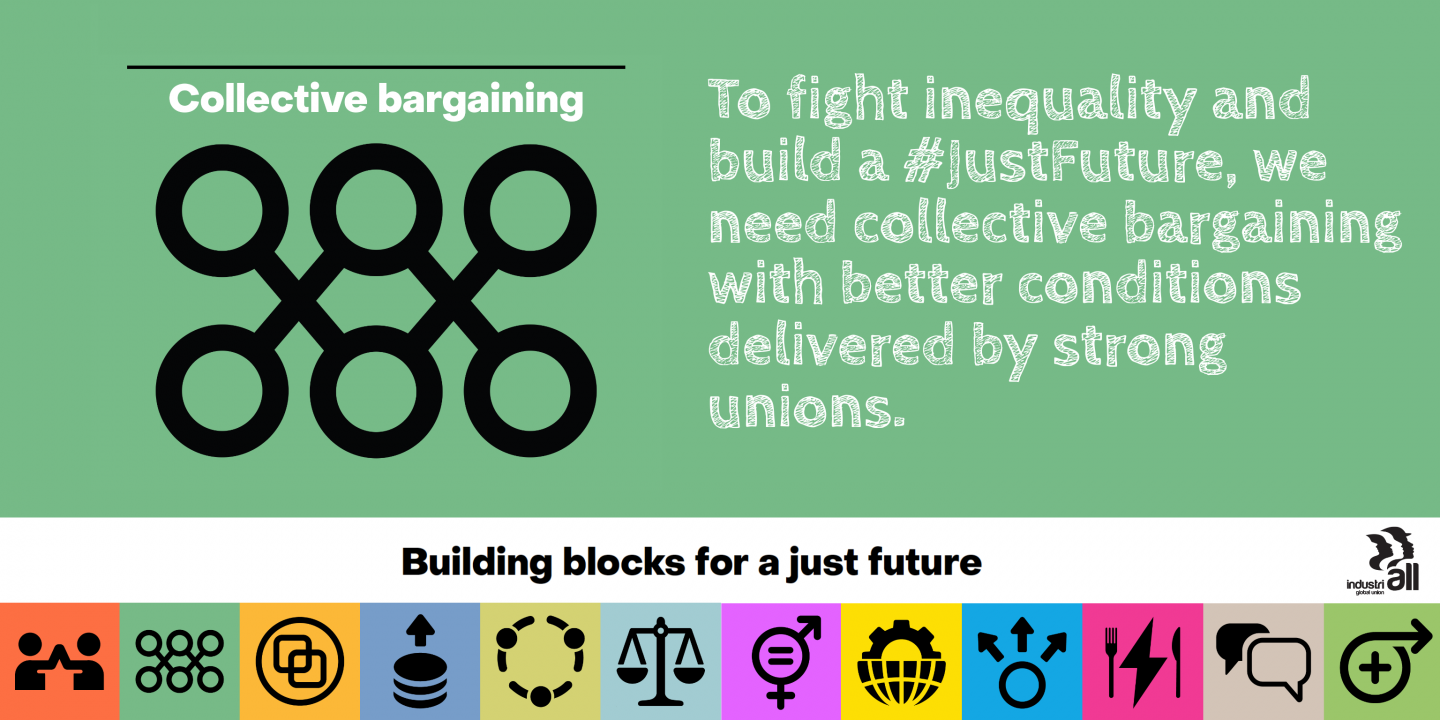22 May, 2023Collective bargaining is core for trade unions as it is a means through which employers and trade unions can establish fair wages and working conditions, providing the basis for sound labour relations.
Typical issues on the collective bargaining agenda include wage increases, working time, training, occupational health and safety and equal treatment. Through these negotiations a collective bargaining agreement, which regulates the terms and conditions of employment, can be reached. Collective bargaining and collective agreements are fundamental to reducing inequality and extending labour protection.
The Botswana Mine Workers Union’s (BMWU) victory in an industrial court stopped unfair retrenchments at Lucara Botswana’s security department at the Karowe diamond mine. 50 workers who volunteered and provided information, in an investigation of allegations of maladministration and unethical business conduct in the department at the mine were given termination letters after they provided testimonies. The union argued in court that the termination was unlawful as there were no disciplinary hearings as required by the labour laws. The industrial court in Gaborone ruled that the diamond mining company cannot continue with the retrenchments without negotiating with the union as per existing collective agreement.
In 2022, Finnish union Paperiliitto went on an historic strike for 112 days when the employer, UPM, left the industry-wide bargaining that had been in place for decades and refused to sign a single collective agreement with the union. The 2,200 members resisted the strike breaking efforts of management, with the strong industrial action receiving significant solidarity support in Finland and internationally. Under a new proposal, five separate collective bargaining agreements were signed with a duration of four years and salary renegotiation after two years.
Japanese metalworkers' unions received the highest wage increase since 2020. Wage negotiations between unions and management take place annually. The Japan Council of Metalworkers’ Unions (JCM), representing two million metalworkers from more than 3,000 affiliated unions, set the standard of a unified demand on wages and working conditions for the annual rounds of industry wide collective bargaining. Unions achieved an additional monthly wage increase of on average YEN8,407 (US$63).
Last year, Bulgarian workers at multinational STS Medical Group signed their first collective agreement after a protest rally where hundreds of workers demanded adequate pay for their work. The union had tried to reach a collective agreement for 1,5 years, but after the protest actions and work stoppages, an additional round of wage negotiations was held. The minimum wage for the company increased to BGN1,000 (US$539). Workers received an increase in food vouchers from BGN80 to BGN200 (US$43), as well as a Christmas supplement of BGN60 (US$32).
In Quebec, 110 members of Unifor local 177 at Joliet Ash Grove returned to work after more than a 16-month lockout. Workers were locked out from the plant owned by Irish cement giant CRH in May 2021, after rejecting the employers’ offers. The dispute was heard before the Administrative Labour Tribunal following a complaint by Unifor regarding the illegal use of replacement workers (scabs) during lockouts announced by the employer. The union won the case. Workers received a 7.5 per cent wage increase and a further 3.5 per cent increase during the second year.
“Building a better future, through better working conditions and improved wages is a fundamental role that trade unions play. It is essential that the inequality gap be closed and the best way to do this is through strong collective bargaining,”
says Atle Høie IndustriALL general secretary.
We need to work together to strengthen collective bargaining for a #justfuture.
